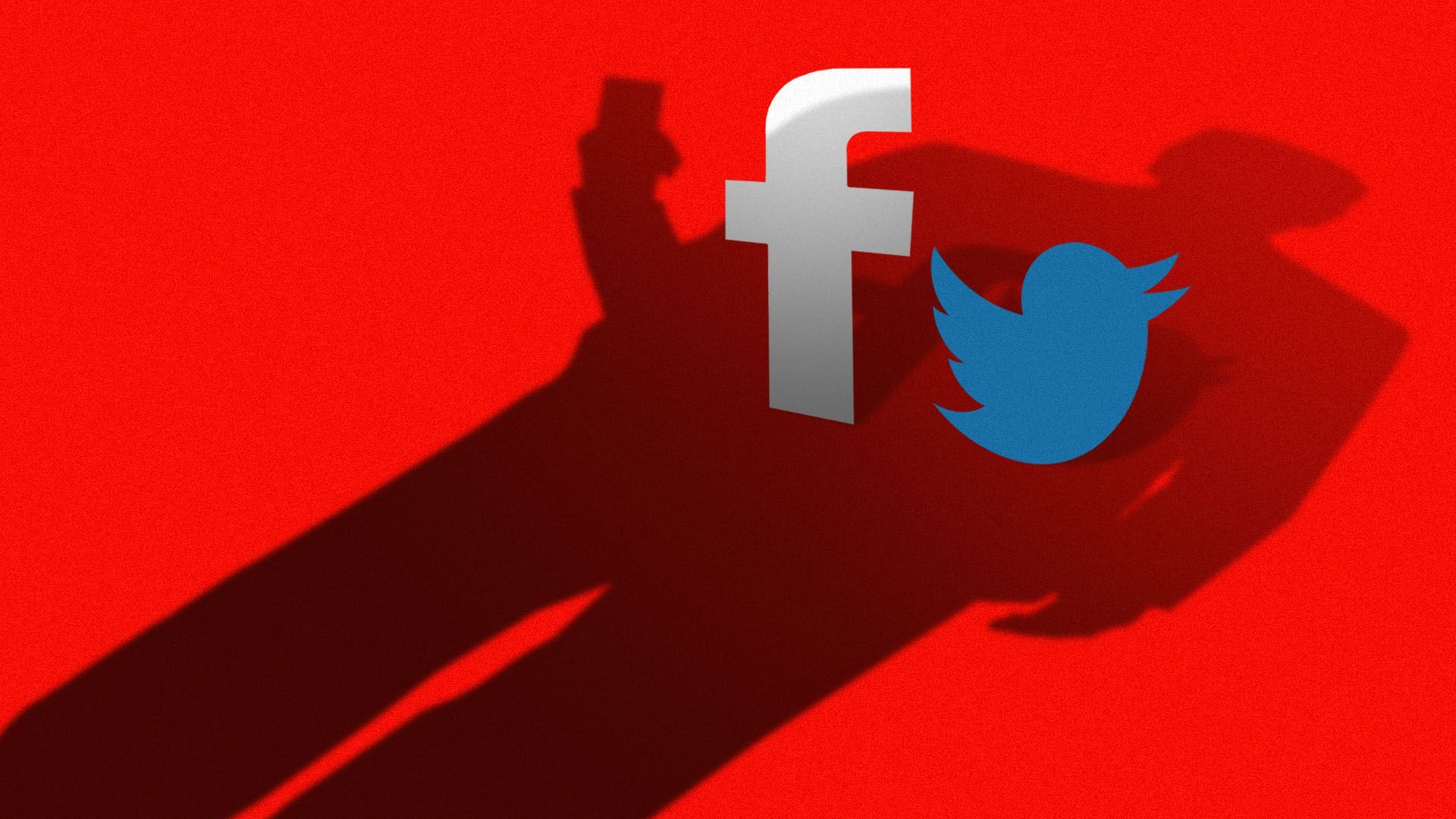Republican rage targets Facebook and Twitter
Add Axios as your preferred source to
see more of our stories on Google.

Illustration: Sarah Grillo/Axios
Republicans and conservatives are unloading on Facebook and Twitter a day after the companies limited the sharing of a New York Post story based on emails and files apparently stolen from Hunter Biden.
Where it stands: The attacks are passionate, but the likelihood of government action against the platforms remains low. Even the most realistic and increasingly popular proposal — to punish online platforms by removing their prized liability shield — would be a steep uphill battle.
Driving the news: Republicans are rallying around shrinking or eliminating Section 230 of the Communications Decency Act, which immunizes tech platforms against lawsuits over both moderation decisions and the material their users post.
- "We're going to take away their Section 230 unless they shape up," President Trump said after bringing up the news at a North Carolina rally Thursday.
- House Minority Leader Kevin McCarthy (R-Calif.) told reporters Thursday that, in light of the news, "it's time to scrap" Section 230.
At the Federal Communications Commission, chairman Ajit Pai said in a Thursday statement that he plans to go through with crafting rules aimed at limiting the scope of Section 230 protections, as Trump requested in an executive order.
- Pai said the agency's general counsel concluded that the FCC has the legal authority to do so, an idea that critics on both the right and left have questioned.
- Any FCC action will depend on a Trump victory in November. Pushing the commission in this direction is a nonstarter for Democrats.
Republicans could also turn to the courts to scotch Section 230. The Supreme Court, Justice Clarence Thomas wrote earlier this week, should look for a case that would let it narrow the law's scope.
- But for now, at least, getting the John Roberts court to hear such a case and deliver a precedent-breaking ruling may amount to Republican wishful thinking.
The most effective path to rein in Section 230 goes through Congress, which could pass new legislation.
- There's bipartisan interest in that idea, but the parties' motives are at odds. Republicans focus on claims of anti-conservative bias, while Democrats want to hold tech platforms more accountable for the spread of misinformation.
- The New York Post case has Republicans furious, while Democrats are likely to see it as a success in the fight against misinformation.
- It's harder than ever to see them working together on this issue.
Beyond Section 230, Republicans are pursuing other lines of attack against the tech platforms.
- Hearings: Senate Judiciary Committee Republicans plan to subpoena Twitter CEO Jack Dorsey to make him testify next Friday on the matter. Panel member Josh Hawley (R-Mo.) also wants to subpoena Facebook CEO Mark Zuckerberg. Both executives are already sure to be grilled about the move when they testify alongside Google CEO Sundar Pichai at a Senate Commerce hearing Oct. 28.
- Antitrust: Some, like Rep. Ken Buck, reupped calls for antitrust enforcement against the big tech platforms as a response to the moves against the Hunter Biden story.
- Campaign finance law: In a Thursday letter to Zuckerberg, Hawley argued that halting the spread of the story may be a campaign finance violation, since the move serves, Hawley contends, as an in-kind contribution to the Biden campaign.
Reality check: A hearing might be dramatic, but none of these approaches is likely to show results.

